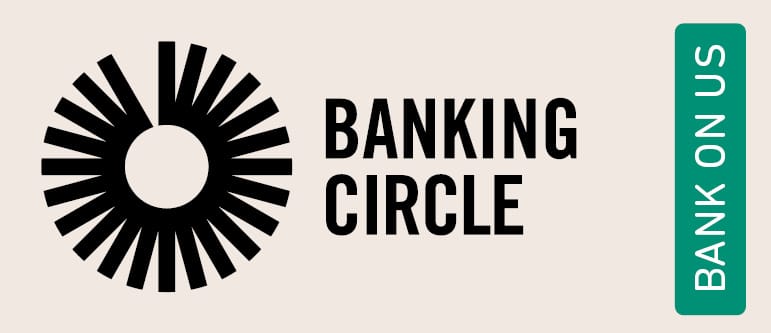FinTech Podcast #304
Contrary to the hopes of many, 2021 starts much like the last one ended. What should we say about January? Oh yes, the American Capitol was stormed by violent Trump supporters, an unprecedented attack on democracy, yet Trump is gone, Biden has moved into the White House as a sworn-in president, Armin Laschet is the new CDU chairman and we continue to be in lockdown and people’s patience is being properly tested. We just can’t get out of the pandemic spiral and the news is pretty one-sided at the moment.
Time for our news duo of Bajorat and Siegert to reunite. The year is still too young, but it’s worth looking back at the last month of 2020 and commenting on the most important things again here. And these were the most important news in the first month of 2021:

Europe’s largest digital bank Revolut reports a black zero
The expansion, which was put on hold last year, is to be continued. Brazil, Mexico and the Philippines are the new expansion markets, and new personnel are also to be hired in Germany. Since the end of 2020, the digital bank, whose main product is a credit card with favorable exchange rates, has also been active in the acquiring business. Soon, Revolut is expected to expand into a financial services super app. The UK fintech has also applied for a full licence in its home country. Revolut, which has repeatedly made a name for itself with negative headlines, is probably also hoping to win back trust.
Mambu becomes a unicorn
Berlin-based Mambu, which offers a core banking system as a cloud solution, has raised a fresh €110 million from investors in a financing round. According to Mambu’s own information, this brings the company’s valuation to 1.7 billion euros, which catapults Mambu into the upper echelons of unicorn startups. Mambu’s clients include ABN AMRO, N26, OakNorth and Santander. Mambu will continue to expand its platform both in breadth and depth and plans to double its team to over 1000 employees by 2022.
Square comes to Germany
US payment service Square is apparently looking to bring its hip cash app to Europe. Job advertisements for a “European Operations Manager” indicate that this is the case. Square already has a European banking license. Now acquisitions such as the Spanish FinTech Verse or the participation in the Italian FinTech Satispay could pave the way to Europe.

Verse, a peer-to-peer money transfer app, has just 600,000 users but an e-money license from Lithuania that would allow it to operate in the EU. The services are to be merged. The Cash app could give players like N26 or PayPal a run for their money.
French iBanFirst launched in Germany
iBanFirst, global financial services provider for foreign currency transactions, is expanding into Germany with the opening of a Munich office eight years after its founding in France. The fintech plans to conquer the German market from the Bavarian capital. The company had previously set up sites in Belgium and the Netherlands.
(via press release)
Getsurance raises money
Frankfurt-based InsurTech Clark raises €69m in fresh capital in a financing round. With the Chinese tech group Tencent, which also owns the messenger service WeChat and the associated payment service WeChat Pay, an international heavyweight is joining the startup as an investor. Existing investors also participate and inject growth capital. The Clark insurance app allows users to manage their insurance policies, compare them and replace them with alternative offers if necessary.
Kontist and SumUp announce cooperation
Business account provider Kontist and payment specialist SumUp are teaming up. Kontist customers benefit from a discounted offer as a result of the partnership and can now offer their end customers a card terminal from SumUp as a further option in addition to cash payments.
Walmart goes under the Start-upper

The US retail group Walmart wants to offer not only food but also its own financial products in the future. To that end, Walmart is teaming up with Ribbit Capital, an investment firm behind the trading app Robinhood, to create a joint startup. It is not yet known when and under which name the FinTech will be launched.
Walmart, however, is said to hold a majority stake in the company and wants to use partnerships and acquisitions to build a powerful, low-cost financial offering aimed at its own employees as well as customers. Walmart itself already offers some financial products, including its own credit and prepaid credit cards.
Cash injection for Quirion
Robo-advisor Quirion receives €13 million from external investors. With the fresh chapter, the company intends to further accelerate its growth. The current valuation after the capital inflow is now EUR 73 million. In addition to private investors, the Berliner Effektengesellschaft has also taken a stake. According to its own statements, Quirion is one of the largest providers among digital asset managers in Germany, with over 26,000 clients and assets under management of around EUR 600 million.
PEAC Bank offers time deposits via Weltsparen
The PEAC Finance Group from Hamburg has held a banking license from BaFin since December 2020. It offers retail deposit products under the PEAC Bank brand. The new bank will offer its savings products exclusively via the Raisin platform Weltsparen.de.
Moss is happy about a lot of money
Berlin-based credit card fintech Moss raises €21m in fresh capital. Peter Thiel’s US investor Valar Ventures is leading the financing round, and existing investors Cherry and Rocket’s Global Founders Capital are also injecting capital. According to FinanceForward, the valuation currently stands at EUR 100m. Moss launched just a few months ago and wants to make accounting easier for startups with a credit card, among other things, or cushion short-term liquidity bottlenecks with flexible business loans. The Berlin-based FinTech, whose founder and CEO Ante Spittler was recently a guest on our podcast, used to be called Vanta and had just recently renamed itself after a naming dispute.
Rapyd completes Series-D
UK payments service provider Rapyd has raised $300m in a D funding round. The backers led by tech investor Coatue thus value the company at $2.5bn. Rapyd offers an API-based FinTech solution for businesses to offer their own payment services without having to develop their own solution. The software solution offers features such as payments, banking services and fraud protection.
Visa cancels acquisition of Plaid
Credit card giant Visa and Plaid have mutually cancelled the 5.3 billion takeover agreed at the beginning of last year after opposition from US antitrust watchdogs. The US Department of Justice had filed an antitrust complaint in November against Visa’s proposed acquisition of the FinTech.

The fear of the competition regulators was that the acquisition would give Visa too much market power. To avoid years of litigation, the deal is now off the table for good. Plaid links various payment apps with bank accounts and thus provides the infrastructure for the PayPal-owned service Venmo or Transferwise.
Entering Chinese market: PayPal now holds all shares in GoPay
PayPal acquired the remaining 30 percent stake in GoPay at the end of the year, taking full ownership of the Chinese payment service. PayPal has thus not only entered the very competitive payment market in China, where AliPay or WeChat Pay have huge market shares. The U.S. group is also the first foreign company to completely acquire a Chinese payment provider at a time when the Chinese government is tightening the thumbscrews on AliPay and other major players and calling for regulation.
Takeover? UBS Group and Paytm in discussion
UBS Group is apparently looking to take a stake in Indian payment app Paytm. Currently, both parties are in advanced talks. A deal could be a done deal as early as the end of the month, reports Bloomberg, citing company insiders. Paytm was founded in 2010 and is one of the most popular payment apps in India. The service offers direct transfers, purchase on account and loans, among other things. Among the investors is the Ant Group. Ant Group plans to continue expanding despite the hassle with Chinese authorities and the cancelled IPO.
Now Alibaba’s financial subsidiary is preparing a European startup fund to support FinTechs. It is to be based in Berlin and initially worth 100 million dollars. The capital does not come solely from Ant Financial, but also from other investors. The focus should be on blockchain technology and FinTech startups. Preparations are said to have been underway for months. The leading figure behind the fund is said to be manager Jasmine Zhang.
Creditshelf brings investor on board
With Amsterdam Trade Bank, Creditshelf has brought another strategic investor on board. The debt capital of EUR 40 million made available at the beginning of the cooperation forms the basis for responding even better to the demand for credit from German SMEs. The bank, which is part of the Alfa-Bank Group, is thus launching its activities in the SME segment on the German market.
Check24 pulls the plug
Check24 has switched off its current account comparison. The reason for this is apparently a complaint by consumer protection groups against the TÜV-certified offer. Check24 said it had invested a seven-figure sum in the certified settlement. This should cover the requirements of the Payment Accounts Act (ZKG).

In it, lawmakers require “substantial market coverage” of account comparisons. And it is precisely over this that a dispute has flared up with consumer protection groups. They criticised, among other things, that Check24 had only taken 576 of over 1,700 banks into account.
Elinvar closes new financing round
The new, billion-dollar lead investor Toscafund Asset Management from Great Britain as well as the previous shareholders Ampega Asset Management, finleap and Goldman Sachs are pumping more than 25 million into the FinTech, pardon: WealthTech, from Berlin. Elinvar has developed a multi-client capable platform that aims to connect the entire ecosystem in asset management, in other words a white label solution for asset managers. The five-year young company provides financial institutions with the technical infrastructure for securities accounts, trades and customer consultations. More than 100 employees take care of the product at Elinvar.
Own Visa debit card for Bitpanda
Vienna-based crypto broker Bitpanda has launched its own Visa debit card. With this, you can (if you want to) spend all assets gathered at Bitpanda (besides cryptocurrencies currently also precious metals) in online shops or stores in the future. Users in the Eurozone can now pre-order the card for free via the app or on the website. Generally, there should be no card fees nor monthly account fees.
Liqid now manages 1 billion in client assets:
Important milestone: The digital asset manager Liqid has exceeded the threshold of one billion euros in client assets under management. This makes the Berlin-based company, which specialises in investment solutions for discerning private clients, one of the largest digital asset managers in Europe. Assets under management have nearly doubled annually since the market launch in fall 2016.
Bonify buys Joonko’s credit software
In the future, female customers of the credit rating startup will be able to receive a loan application, verify themselves and sign the contract directly from the app. This is made possible by the technology that the company bought from the comparison portal Joonko. The startup is currently in liquidation. How much Bonify paid for the technology is not known.
Nürnberger Versicherung takes over Getsurance
Founded in 2016, Berlin-based insurtech startup Getsurance has found a buyer after going bust – namely Nürnberger Versicherung. The two founding Becher brothers leave the company. The traditional group does not want to make any changes to the basic structure of Getsurance. The Getsurance brand would be retained, all employees would be taken on and the company headquarters would remain in Berlin.

New fintech launched in Berlin – and with high funding at the same time
A bit quietly and then suddenly with a big “boom” to the market comes the business banking fintech, Remagine. According to media reports, it has already reached 20 million euros in funding. Remagine aims to fund sustainably positioned startups and provide them with a banking platform.
Personalia
Sibylle Strack at Germany’s largest credit institution since January
The move came as something of a surprise in December. Sibylle Strack, co-managing director of Kontist, had announced her intention to devote herself to new tasks. And apparently she already knew then where her professional journey was heading. Because as of January 1, she is now “Chief Growth Officer” of Deutsche Bank’s business client segment Bizbanking. In this function, she is to further develop existing and new distribution channels and ensure growth. Deutsche Bank has bundled its group-wide activities with business customers under Bizbanking.
(via press release)
Vanguard brings in Thomas Wolff from Scalable Capital
Vanguard had already brought the ex-CEO of Ratepay Jesper Wahrendorf and the former Solarisbank board member Andreas Bittner on board for the Germany team. Now US asset manager Vanguard, which is looking to set up a German robo-advisor in this country, is poaching Thomas Wolff from Scalable Capital. Wolff was responsible for sales and customer service at the German market leader.
N26 hires ex-Zalando finance chief
Berlin-based smartphone bank N26 GmbH is bringing the former chief financial officer of Zalando SE on board, in what could be the first concrete sign of an IPO for the company. Jan Kemper will take up his new post as CFO in the second half of the year, N26 announced on. In the same function, he had accompanied the IPO of the online retailer Zalando in 2014. N26 had repeatedly promised a stock market debut in the past. Are these the harbingers of the same move?
We thank our great sponsors

&

&

If you like it, why not subscribe to the podcast at Soundcloud , Spotify and iTunes and rates this one 5 stars.
⭐️⭐️⭐️⭐️⭐️
Subscribe: You can listen to paymentandbanking.com’s various podcast formats (#Ask Me Anything, #NewsPodcast, #5PMClub) on all major podcast platforms. For example, at Apple Podcasts, Google Podcasts, Castbox, Deezer, Podimo, Overcast, PlayerFM, Spotify, SoundCloud or subscribe as RSS feed.
